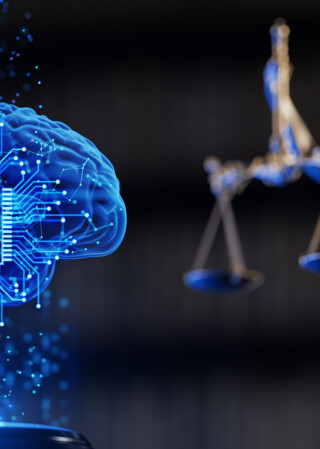
Recent Updates relevant to Local Government and Planning Law
Practice Note: Use of Generative Artificial Intelligence (Gen AI)
The Land and Environment Court recently adopted the Practice Note: Use of Generative Artificial Intelligence (Gen AI) (the Practice Note). Some key (and very important) components of the Practice Note are:
Application
- The Practice Note commences on and will be applicable from 3 February 2025. HOWEVER Expert reports prepared between the 28 November 2024 and the date of commencement of the Practice Note must identify which, if any, part/s of the report have relied upon Gen AI in the preparation of content.
- The Practice Note describes Generative AI (Gen AI) as “a form of artificial intelligence that is capable of creating new content, including text, images or sounds, based on patterns and data acquired from a body of training material”.
- Gen AI may take the form of generic large language model programs such as Chat-GPT, Claude, Grok, Llama, Google Bard, Co-Pilot, AI Media, Read AI or more bespoke programs.
- Gen AI does not include technology that merely corrects spelling or grammar or assists with formatting, provides transcription, generates chronologies from original material and otherwise does not generate “substantive content”.
- The Practice Note does not apply to the use of search engines (e.g. Google) which produce a list of websites that match search criteria or dedicated legal research software that uses AI to conduct searches across legal material (legislation, cases etc).
General Prohibition
- Certain information (including material produced on subpoena, or any material that is the subject of a statutory prohibition upon publication) must not be entered into any Gen AI program. The Practice Note sets out the applicable information.
Affidavits, witness statements or other evidentiary material
- Gen AI must not be used in generating the content of affidavits, witness statements, character references or other material that is intended to reflect the deponent or witness’ evidence and/or opinion, or other material tendered in evidence or used in cross examination. Note: this includes annexures (subject to exception below).
- An affidavit, witness statement of character reference must contain a disclosure that GEN AI was not used in generating its content (no exceptions)
- In exceptional cases, leave may be sought to use Gen AI for the preparation or generation of any annexure or exhibit to an affidavit, witness statement or character reference.
Written submissions and summaries of argument
- Gen AI may be used for written submissions subject to strict criteria and proper referencing
Expert Reports
- Expert reports must state the opinion of the expert and the reasoning process behind this. Gen AI must not be used to draft or prepare the content (or any part) of an expert report without prior leave of the Court.
- Subject to certain criteria, leave may be given to use GEN AI. The Practice Note should be carefully read by the expert to understand applications for leave to use GEN AI and how such use is disclosed in the report.
Key Takeaways
- ANYONE who intends to give written evidence in the Land and Environment Court or depose an affidavit must immediately read and be familiar with the content of the Practice Notice. Practitioners should provide a copy of the Practice Note to all experts and individuals who depose affidavits.
- The Land and Environment Court has cautiously opened to the door to the use of Gen AI, however has taken a strict approach having regard to the perceived risks and shortcomings, which include the risks of inaccuracies and false or fabricated citations, the scope for biased content, inadequate safeguards to preserve privacy and confidentiality when information is put into an AI search engine, and breach of copyright concerns across many levels. Watch this space for further updates!
If you are otherwise unsure about the contents of this article or require more information on the above, please contact Peta Hudson at phudson@marsdens.net.au or by phoning 02 4626 5077.
The contents of this publication are for reference purposes only. This publication does not constitute legal advice and should not be relied upon as legal advice. Specific legal advice should always be sought separately before taking any action based on this publication.
Want to hear more from us?
Subscribe to our mailing list

